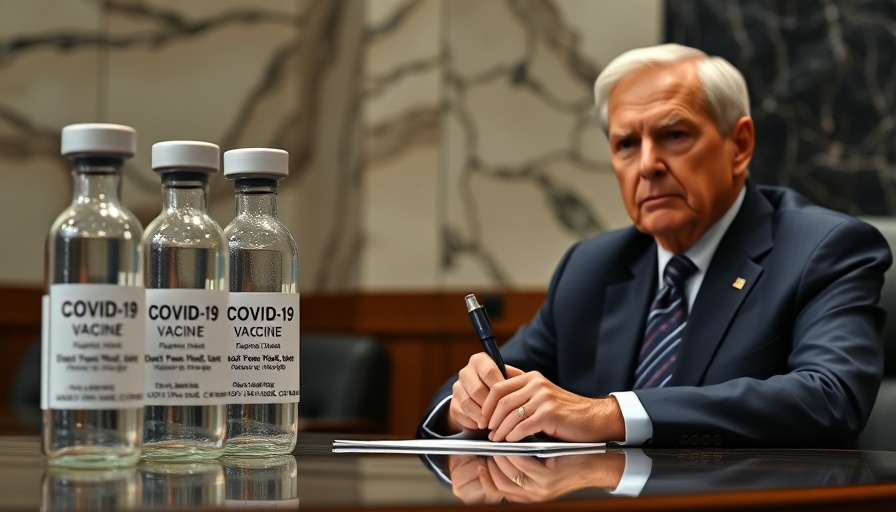
Breaking Ground in Nutrition Policies
Nebraska has taken a historic step in nutritional reform by becoming the first state to ban soda and energy drinks from purchases made with Supplemental Nutrition Assistance Program (SNAP) benefits. This decision, recently approved by the USDA, aims to combat the growing epidemic of obesity and diabetes that afflicts millions of Americans. Set to take effect on January 1, 2026, the ban is part of President Donald Trump’s initiative titled “Make America Healthy Again,” which addresses the dire health consequences of poor dietary choices.
The Obesity Epidemic: A National Concern
With obesity rates soaring to 40.3% across the U.S., the urgency of this action cannot be overstated. Alarmingly, one in three adolescents are prediabetic, a statistic that reflects broader societal trends in dietary habits. Evidence shows that sugary drinks heavily contribute to these health issues; thus, eliminating them from SNAP eligibility represents a significant stride toward healthier lifestyles among low-income families. As further states like Arkansas, Indiana, and Iowa follow Nebraska’s lead, we may see an impactful shift in national policy.
Supporting Health or Limiting Choice?
While many health experts laud the ban as a necessary public health measure, it has also sparked a fierce debate about personal choice. The American Beverage Association argues that restricting what families can buy with SNAP undermines consumer rights. "Millions of Americans rely on SNAP to feed their families and should have the freedom to choose the foods and beverages that best fit their needs," they assert. This contention raises critical questions about the balance between ensuring nutritional support and upholding individual freedom.
Reform: A Long Time Coming
Historically, SNAP has permitted beneficiaries to purchase a wide range of items, with only a few exceptions such as alcohol and hot prepared meals. For decades, sugary beverages ranked among the top purchases in SNAP households, fueling concerns about taxpayer dollars being used to finance unhealthy choices. Agriculture Secretary Brooke Rollins highlighted these issues, stating during a White House briefing, "When a taxpayer is putting money into SNAP, are we OK with us using their tax dollars to feed really bad food and sugary drinks to children who perhaps need something more nutritious?" This question resonates deeply with many citizens who advocate for reform.
The Human Impact: Voices from the Community
Locally, the reaction to this decision has been a mixture of optimism and concern. Governor Jim Pillen celebrated the ban, noting, “There’s absolutely zero reason for taxpayers to be subsidizing purchases of soda and energy drinks.” Such sentiments reflect a growing consensus in communities that prioritize health, aiming to cultivate wellbeing in future generations. It is hoped that with this measure, families will opt for more nutritious options, thus fostering a healthier community.
Current Trends and Future Directions in Nutrition Support
Many states are now actively pursuing similar restrictions on sugary drinks, indicating a nationwide trend toward improved nutritional policies in welfare programs. The success of Nebraska’s ban could pave the way for other states to implement their restrictions, potentially transforming SNAP into a program that emphasizes health and nutrition.
A Collective Responsibility: Making Healthier Choices
As this ban takes effect, it will be crucial for states to provide resources that guide families on healthier food options. With initiatives underway to monitor compliance, Nebraska plans to assist retailers in adapting to new regulations. This proactive approach reflects an understanding of the challenges that low-income populations face in accessing nutritious food and the importance of ensuring that they are supported in making healthier choices.
Conclusion: A Call for Support and Engagement
In recognizing Nebraska’s groundbreaking steps in nutritional policy, it’s essential for communities to rally around these changes by advocating for healthy eating habits and supporting initiatives that promote wellness at all levels. As this conversation evolves, engaging in community discussions around nutrition can help foster a culture of health and wellness. Embrace the changes happening in SNAP and support your local initiatives aimed at encouraging healthier lifestyles this year. Your voice matters in shaping a healthier future!
 Add Row
Add Row  Add
Add 



Write A Comment